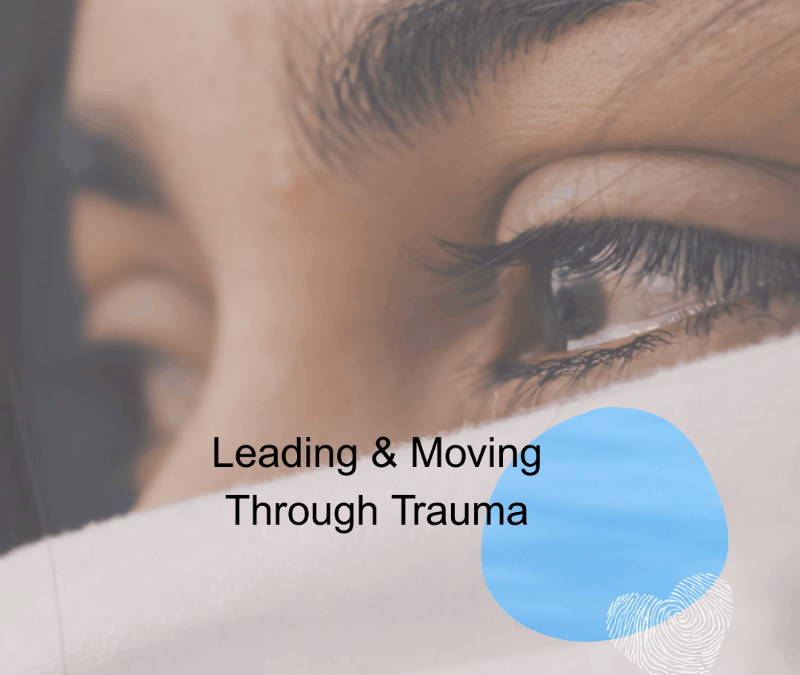Devastation and natural disasters are becoming increasingly frequent, unfortunately. As we endure wildfires, hurricanes, flooding, and various catastrophic events, it is crucial for us, as leaders, to learn how to be of service, how to lead, how to hold space, and how to honor our own processes during these challenging times.
I have personally experienced this, as I went through Hurricane Helene in the Blue Ridge Mountains. My small town of Swannanoa, located east of Asheville and west of Black Mountain, was featured repeatedly on CNN and other national news channels. I live less than two miles from ground zero, and by the grace of a higher power, my family, home, and neighborhood remained safe. And to say it was apocalyptic, well, would be accurate.
Despite having lived in Florida for many years, I had never experienced a hurricane of such magnitude. Ironically, it was in the safety of Western North Carolina that I finally encountered the devastation that such storms can bring. Like many others in this region, I have been processing this destruction, witnessing areas affected that I had never seen before and hearing stories of loss and sorrow within our land.
I have also observed the resilience of the human spirit as our community comes together during this crisis. The past five months have been profound and impactful. As the landscape of my community has changed—cars piled up in rivers and roads reduced to rubble—I am reminded of how little control we have over natural disasters. It’s unsettling, really. We must continue to take care of ourselves, our community, and our planet to the best of our abilities.
Since Hurricane Helene, which means “shining light,” I have learned several important lessons about myself and human behavior, both personally and as a business owner. Although I do not run a large company or manage a significant staff, I felt a strong urge to support my community, its instinctual really. My goal was to take care of my clients and assist first responders, as well as those who were exhausted from volunteering countless hours. I provided them with trauma-informed bodywork and helped with nervous system regulation. Additionally, I coached a few Executive Directors and community leaders as they navigated their feelings of grief, guilt, fear, anger, frustration, exhaustion, and perseverance.
Leading a business during a traumatic life event requires an emphasis on self-care, open communication with your team, utilizing support systems, and adjusting your leadership approach to acknowledge the emotional effects on both you and others. This often means showing empathy and flexibility in work expectations while still ensuring that essential business functions are maintained.
Here are some key things to consider:
Prioritize self-care if you can:
Seeking professional counseling or therapy to work through your emotions, if necessary. A lot is happening on both the seen and unseen levels of consciousness. Many professionals specialize in trauma and offer various techniques to help you through your day. Establishing healthy routines, such as eating whole foods, exercising regularly, and getting sufficient sleep, can provide a strong foundation for well-being. Natural disasters do not resolve overnight; you may encounter ongoing triggers as you live and work in the affected environment. Recognizing your limits and setting realistic boundaries for yourself is crucial.
Open communication with your team as much your bandwidth can handle:
Be transparent about your situation to the trusted few within your leadership team, explaining the potential impact on your availability and decision-making. Communicating regularly with your employees and being kind to yourself and others during this process is essential. It is also a difficult time to navigate clear communication. Many are in disbelief, shock and fear. There is a lot going on. Encouraging open dialogue for yourself and your team members is a great way to come together and create a safe space for concerns, emotions, and fears.
Practice an Empathetic leadership style:
Showing compassion and understanding goes a long way. Remember, this could be a new experience for everyone. People process in different ways, so recognize that and honor each individual. We all have our way. Adjusting expectations and deadlines where necessary is a great start.
If I can emphasize anything in these bullet points, it is that we all have our own ways of coping with a life-changing event. It’s important not to pass judgment on ourselves or others. Many, including myself, jumped into action to assist first responders and support the hardest-hit communities once we knew our homes and families were safe. However, there were others who needed more time to process and understand the devastation and its impact. Others were just trying to find safety, get basic needs met, and recover all that had been lost. Not everyone can help others, not everyone can jump into action, and could be treated case by case. I saw people watch their houses wash down the river, and others who were unscathed, but remember the collective consciousness in intense.
I am not a psychotherapist, or a trauma expert nor to I pretend to be. I can only go by my own experiences and what I have witnessed from others during Hurricane Helene. I hope this article has helped someone in some way and look forward to hearing kind comments where applicable.


Recent Comments